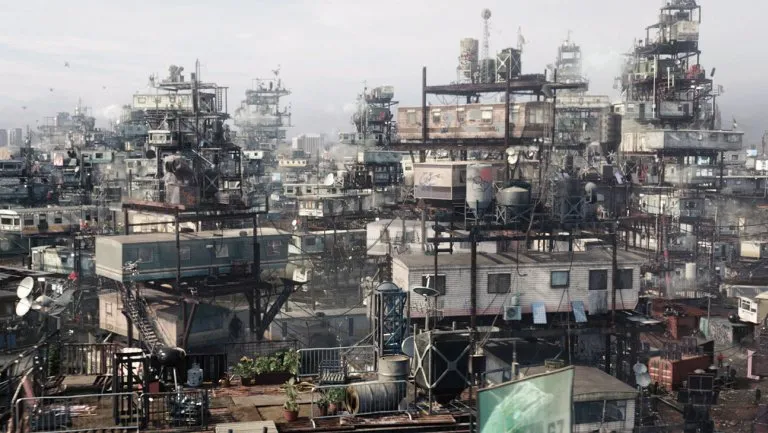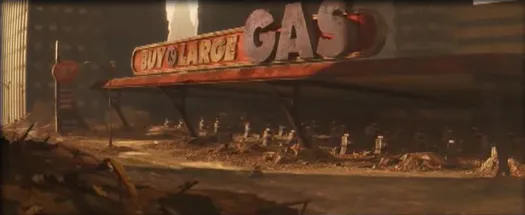People always asked my man and I if we were going to have a kid together. Having had my maternal clock tick noisily at 25, leading to a pregnancy to a man I didn't love, I knew what it was like to long for a child, and knew what it was to love one so. Though I loved my boy beyond all reason, my wings had been clipped slightly. I knew how much a child would throw this brilliant new love into another dimension, bind us into some other contract I didn't want. My man wrapped me in his warm embrace and said that our baby was our love, quite possibly the corniest thing he'd ever said before or since, but a beautiful answer.
We didn't need a child to fulfil us, despite expectations from society. He particularly felt that there were enough children in the world already, and enough problems with overpopulation and all the disasters that brings, so it was our responsibility to not add to that. Besides, we wanted to travel, and wanted certain freedoms that another child would just not quite work.

Years later, we still feel twinges of regret balanced with the knowledge we made the right decision. We're about to go on another adventure, and we're free and young enough to do that, and the world isn't getting an easier place to raise a child. I quietly and often sadly think of his family tree and how this branch stops here, and what a shame there's not another HIM in the world, and that he never felt that unbounded joy of fatherhood, though he did a great job at being a stepdad.
I look at people our age and in our situation, and don't envy them their lives. Whilst we're nearly mortgage free and with no financial obligations to anyone but ourselves, it's easier to feel high and mighty, as if we've somehow stumbled across a secret everyone else is too busy following their biological imperative and social conditioning to see. But there's things we are missing out on too - the Christmases surrounded by children and grandchildren, the fear that we will lose the only one we have, the loveliness of seeing your children grow up - all of them, not just one. I like to think that in another life I'll live in a forest and have ten children and be poor and happy with the richness of their laughter filtering down like sunlight.
But this is simply nostalgia getting in the way of rational thought. We didn't. End of. When we're dead and gone, no one will care and we certainly wont know!
Ecotrain's question of the week this week asks whether it's good or bad idea to bring children into this world in these troubled times. Given the anecdote above, I can easily say it's a bad idea because it's another way to live with the fact we never had a child together. But it's far more complex than that, and like usual, I can't answer either, or. It is both a good and bad idea, and a bad one. Good? My internal jury is still out on that one, but I know how much joy personally my boy has brought into my life.
You can't begrudge people wanting that.
I dismiss these feelings as I don't want to sadden my life by listening to these base, primal desires. It's only a biological imperative, after all - some deep, driving force that's imprinted on us so that our species survives. Being aware of this desire as _sensation_probably leads to far greater happiness - we should never follow our base desires for the sake of desire, regardless what society or culture wants us to do.
Our world is suffering, too. My beautiful, quiet and wild coast is quiet and wild no longer, and all the wild spaces seem to be trembling in anticipation of development. I feel an unwilling anger rise - there are far too many people and it's ruining what I treasured so much. I try not to think about it. There's not a lot that I can do. I can't scream 'stop having children, people, we gotta unfuck this world!' at the top of my lungs the way I really want to. Because, love. Because, human. And because its not the people, but the poor systems we have in place to MANAGE people.
As I considered the relationship between chaos and order in our natural world, I argued in this post that man disrupts the natural order. Someone commented quite rightly that man IS part of the natural world, so maybe we should trust the situation to right itself and not worry about fixing things so much, let we just cause more problems. In many ways, he's right, but I can't help this train of thought that despite human beings being 'nature' too, we're the only one that disrupts natural feedback loops for their own greed and desires - not just simply survival, but for greed. Whilst 'progress' has made us thrive as a species, it also has had a great toll on the earth. Being civilised, progressive, technologically capable and able to tame nature's wildness has always been a _good_thing which has differentiated us from beast, but hasn't quite removed our beastliness - the following of our base desires without awareness of the impact we might have. We aren't very good at putting systems in place that might manage overloads on current systems.
A shark will bite because it wants to see what you taste like. It's not thinking about the impact on your life, the repercussions for your family, and the fear it's creating in mankind. Human beings have the capacity for empathy and forethought. Our ancestors would know if the natural world has been disrupted because it affected them, and thus it changed the way they interacted with it. We don't take all the apples on the tree but leave some for the birds. We don't take all the mushrooms and the ones we do, we shake in the hopes their spores will spread so that more will follow.
We are conscious enough to know that the more of us there are, doing the same amount of damage, the more problems we are going to have - environmentally, socially, culturally. We all know about the effects of overpopulation - it's been part of a wider dialogue globally for a long time now.
But if we argue that it's a bad idea to have so many people in the world, yet still desperately want children, how do we reconcile that? And are we juts getting over emotional about it and buying into fear mongering about overpopulation without looking at how we CAN manage it if we do it right?

In Spielberg’s 'Ready Player One', people escape cramped reality to a VR landscape. Is this the world we want for our children?
Would having less - or no - children really make a difference?
One might argue that there is a limit to how much power an individual decision to _not_have children can have. Because we don't talk about not having children as a solution, and because the problem of overpopulation is so vast (one billion added every 12 years - how will my one or two children or absent thereof make a difference?) that it can feel pointless no matter what we do.
There is both empowerment in the drop in the ocean theory (if I form part of many drops, I can affect change) and despair (how can my one single drop make a difference?). Clearly, collective impact is powerful - and thus, if we can accept collective responsibility for environmental issues then this can flow on to businesses, hospitals, schools and so on. Together, we're stronger - and this togetherness is more conceivable at a local level that we can see and understand.
What if, for example, schools were not allowed to accept children outside a particular radius so that walking or public transport was easier than parents driving you? If all textbooks were digital? If every school planted green zones and had kitchen gardens that contributed toward food security? That had mental health programs such as mindfulness to mitigate the stresses of our lives? That worked on solutions to environmental problems rather than focused on results? Or, if we completely restructured the school system, like the Green School in Bali?
Organisations and people working for organisations with huge environmental footprints much bigger contributors to environmental sustainability and growth than those who decide not to have kids - especially if we haven't reached critical mass on the whole 'let's not have kids thing'. Think of it in numbers. 5,000 people die in floods in Bangladesh every single year. EACH HOUR, 15,000 babies are born. That means that within 20 minutes, that population is replaced. Unless everyone decides to have only one child, or none, right now, our individual decisions aren't going to matter much.
Can reducing consumption be another key?
Affluence, rather than overpopulation, can be a bigger contributor to climate change and environmental issues than having ten children. If you are well off, you can buy the latest TV every year, the latest iphone, a second house in the countryside, a bigger house with a bigger environmental footprint. It's not the number of people that impact the planet but our consumption habits. We simply can't have all these people consume the amount of meat, water, plastic and so on as they do now. Thus, changing our consumer habits can have far more impact than the decision not to have children.
We have to consider that we are absolutely brainwashed to consume at every level - capitalism DEPENDS on it. We can reduce that by not having children, or we can have children and teach them to resist these forces.

In the Pixar film 'Wall-E', mass consumption leads to pollution so bad that it is necessary to move the population off planet entirely.
Birth Control as A Western Luxury - And Child Bearing as a Human Rights Issue
Limit the amount of children born, and eventually you'll have less woman of child bearing ages, leading to human trafficking. This isn't a future speculation - this has already happened in places like South Korea and China. Birth rates are linked to economies whether we like it or not, but this can have a terrible effect on woman's reproductive rights and identities. In 2016 in South Korea a map was published a map which showed a real time map of woman of child bearing ages in the hope to spur competition between regions. Whilst this was taken down in a day due to public outburst from woman who felt they were seen as little more than reproductive organs, it is situations like this that make enforced birth control policies a human rights nightmare.
Having only one child, or none, is also a luxury of the west and more affluent areas. 12 percent of woman globally actually don't have access to family planning. Gender preferences lead to the abortion of girls - and later, increased sexual violence and trafficking as a consequence. Begin to limit population by arguing we should not have children - or, only one child, or give perks to families with less children, opens up far more human rights issues than it solves. Some might argue that western, privileged citizens of the world should shoulder this responsibility for less privileged by having less children - but try telling that to a mother who desperately wants a baby in her arms.
At 25, with my maternal clock ticking, I didn't give a flying HOOT about world population - my beautiful boy was everything. This drive could not be ignored despite any _moral_imperative I may have also felt.
I would never change the fact that I, by one beautiful child, added to a populations of billions. But what I can do is consider how much strain my presence - and his - has on the planet already, and act accordingly to adjust my habits.
This is a response to the Ecotrain question of the week, asking whether it's a good idea or a bad idea to bring children into the world in these troubled times. Find the guidelines for writing on this topic here - anyone can write, but please use the tag#ecotrain so we can read each other's responses to this controversial, but essential, question!
Posted from my blog with SteemPress : http://www.riverflowings.com/?p=332



